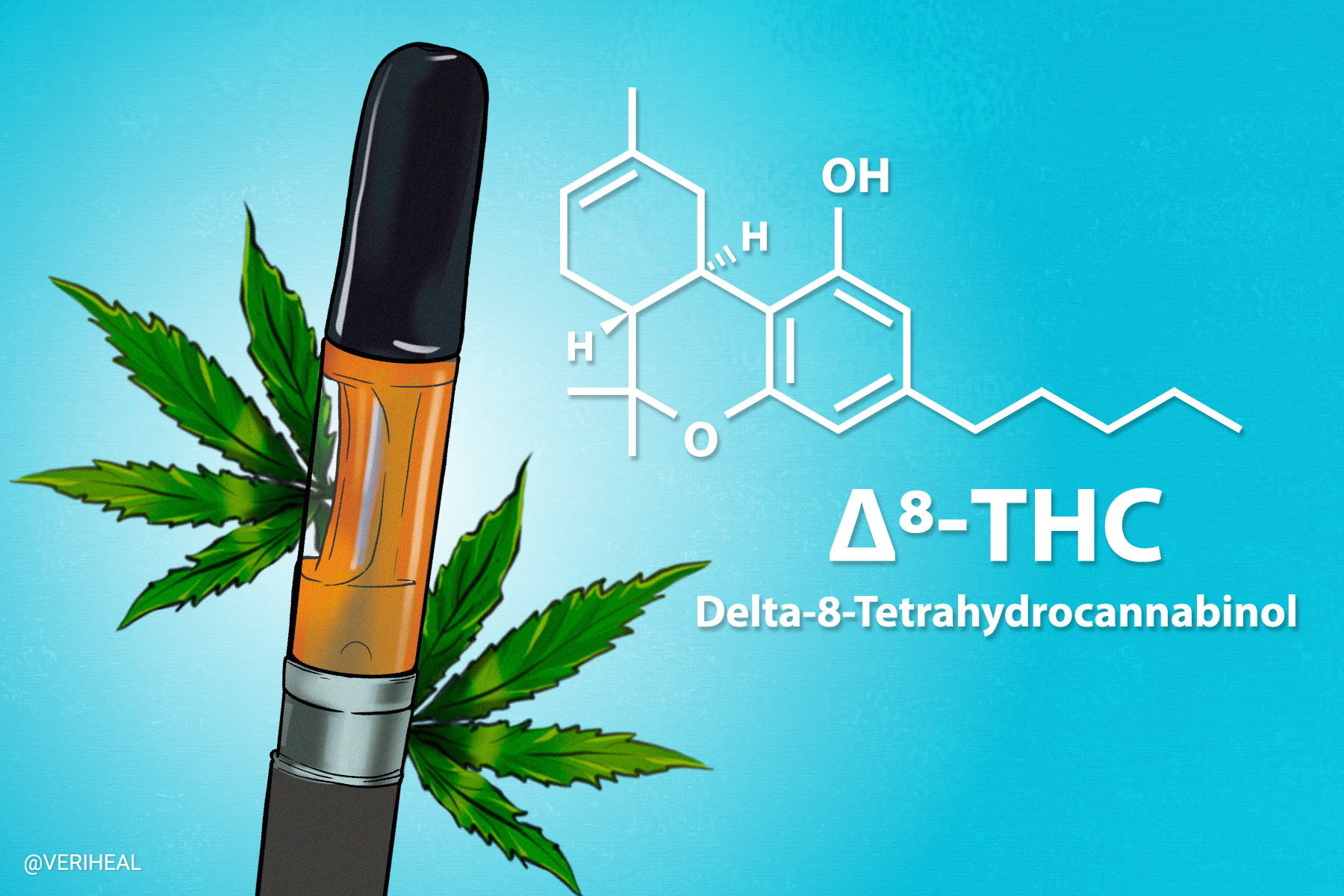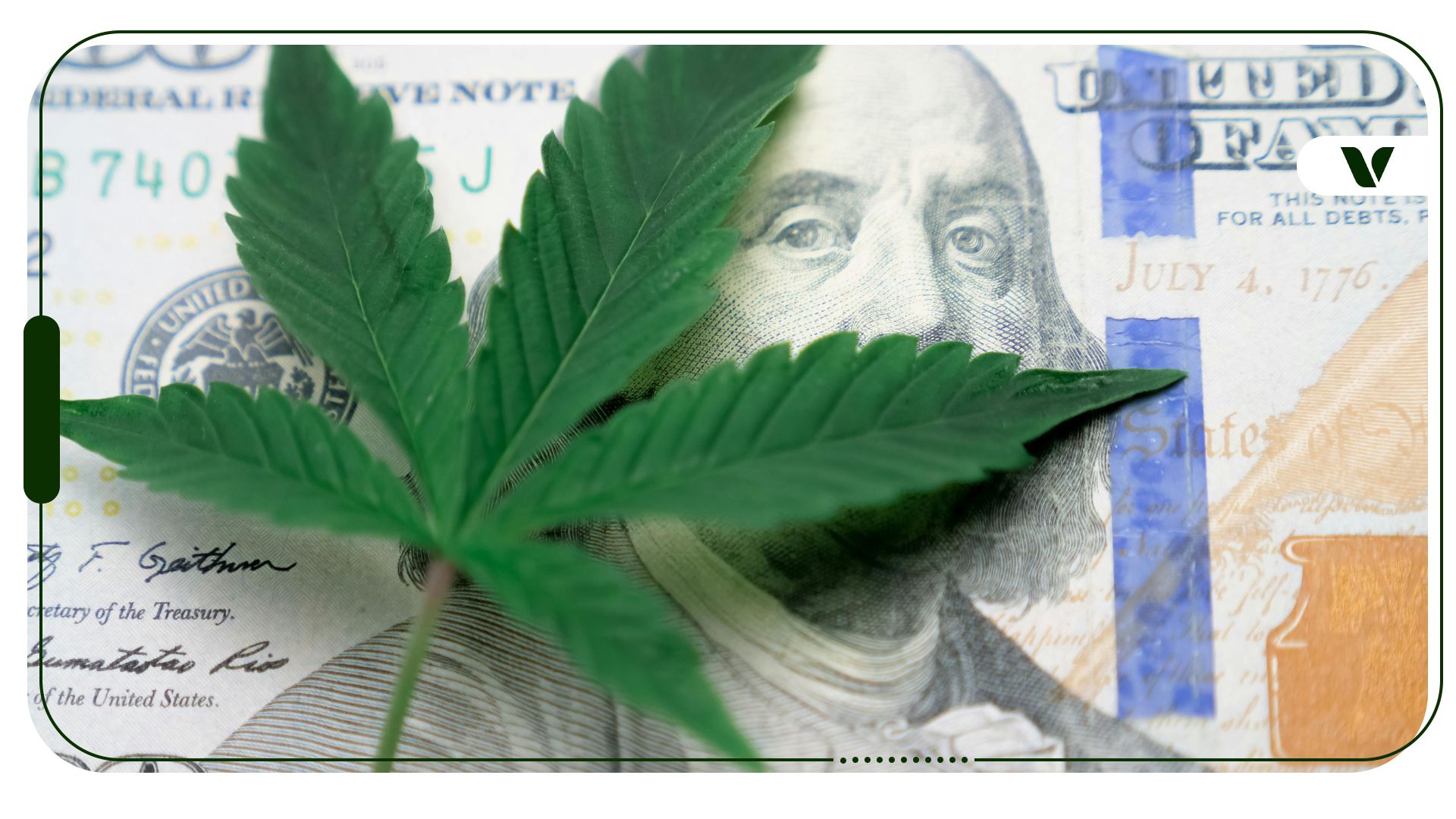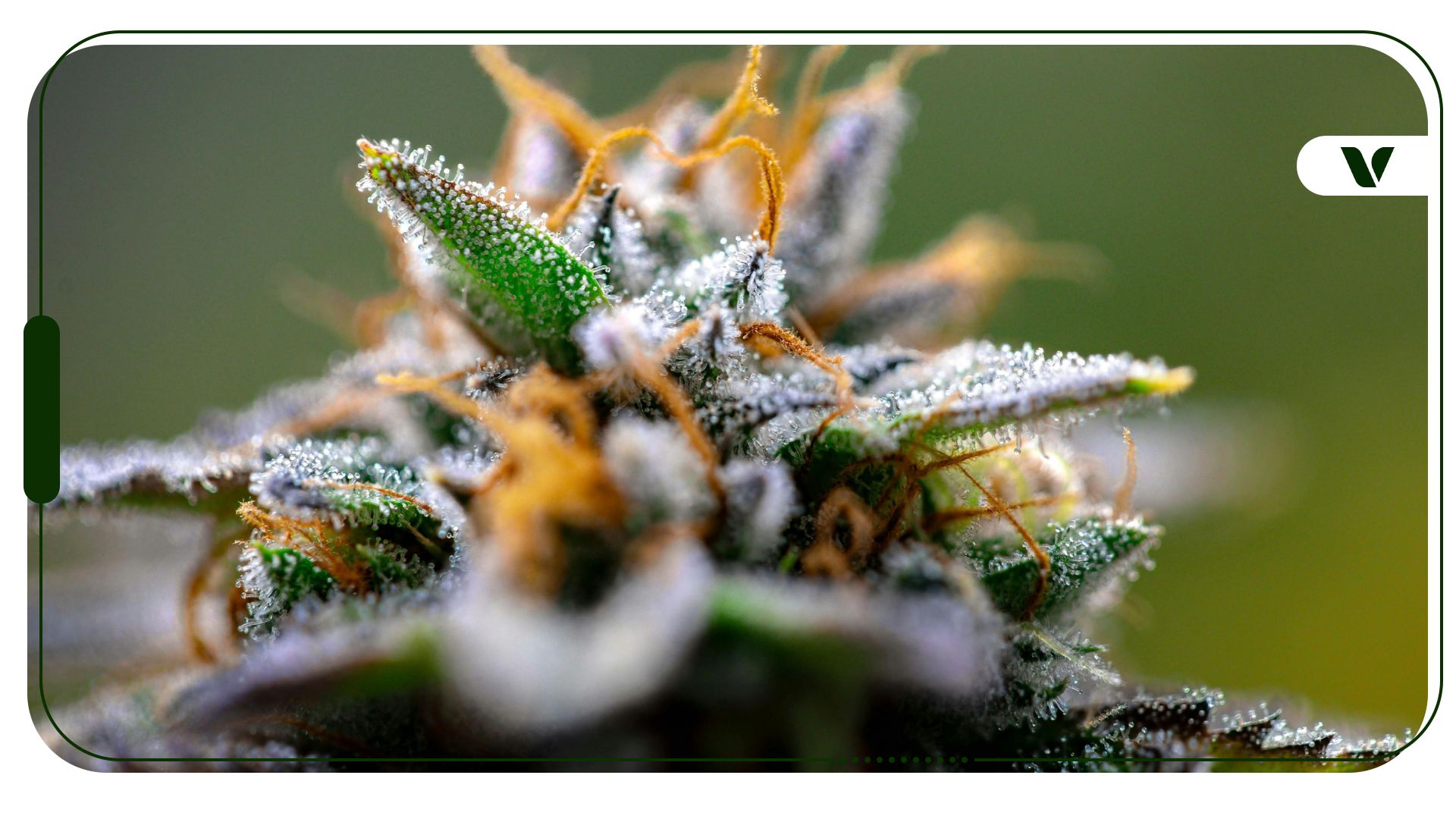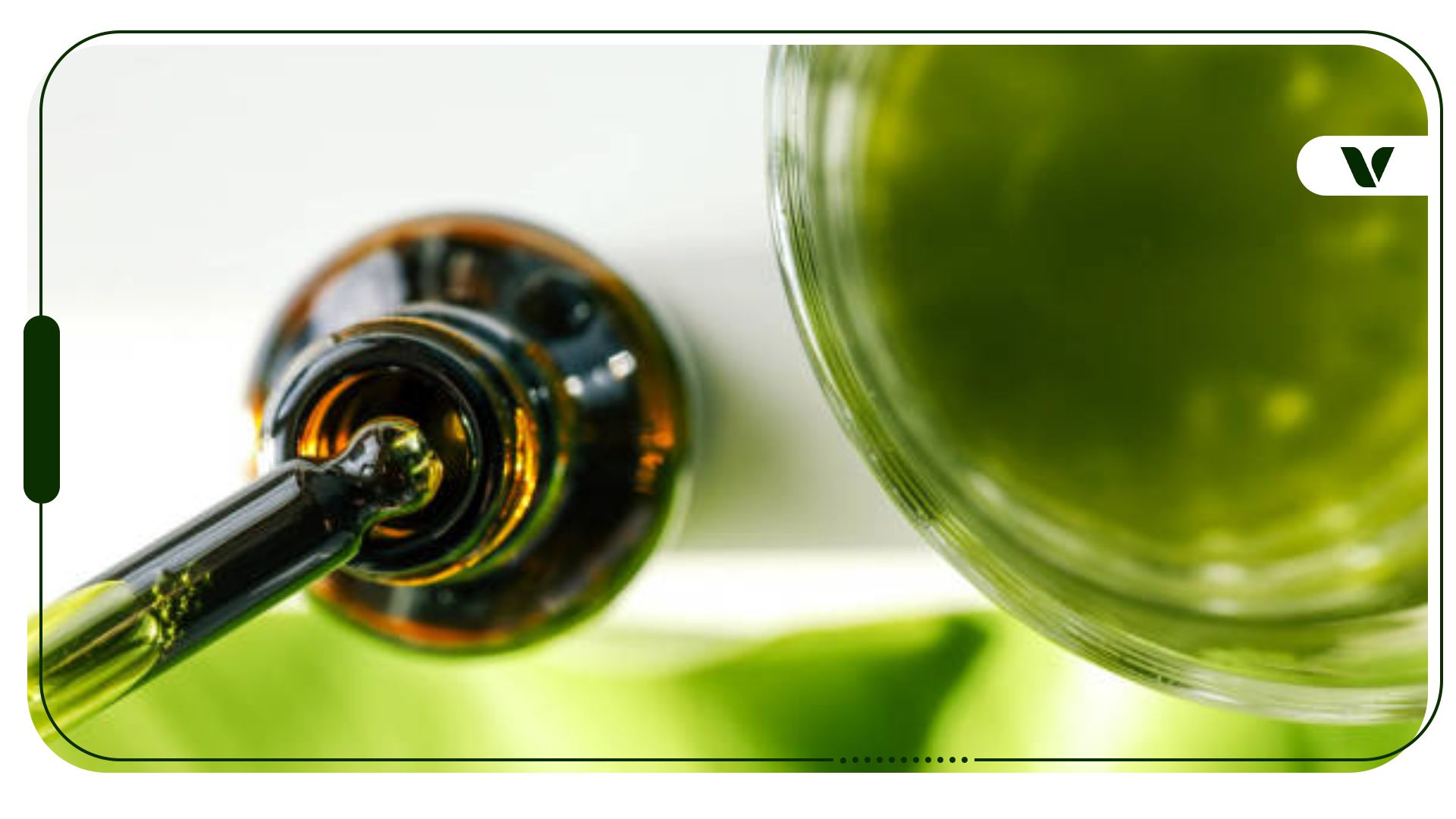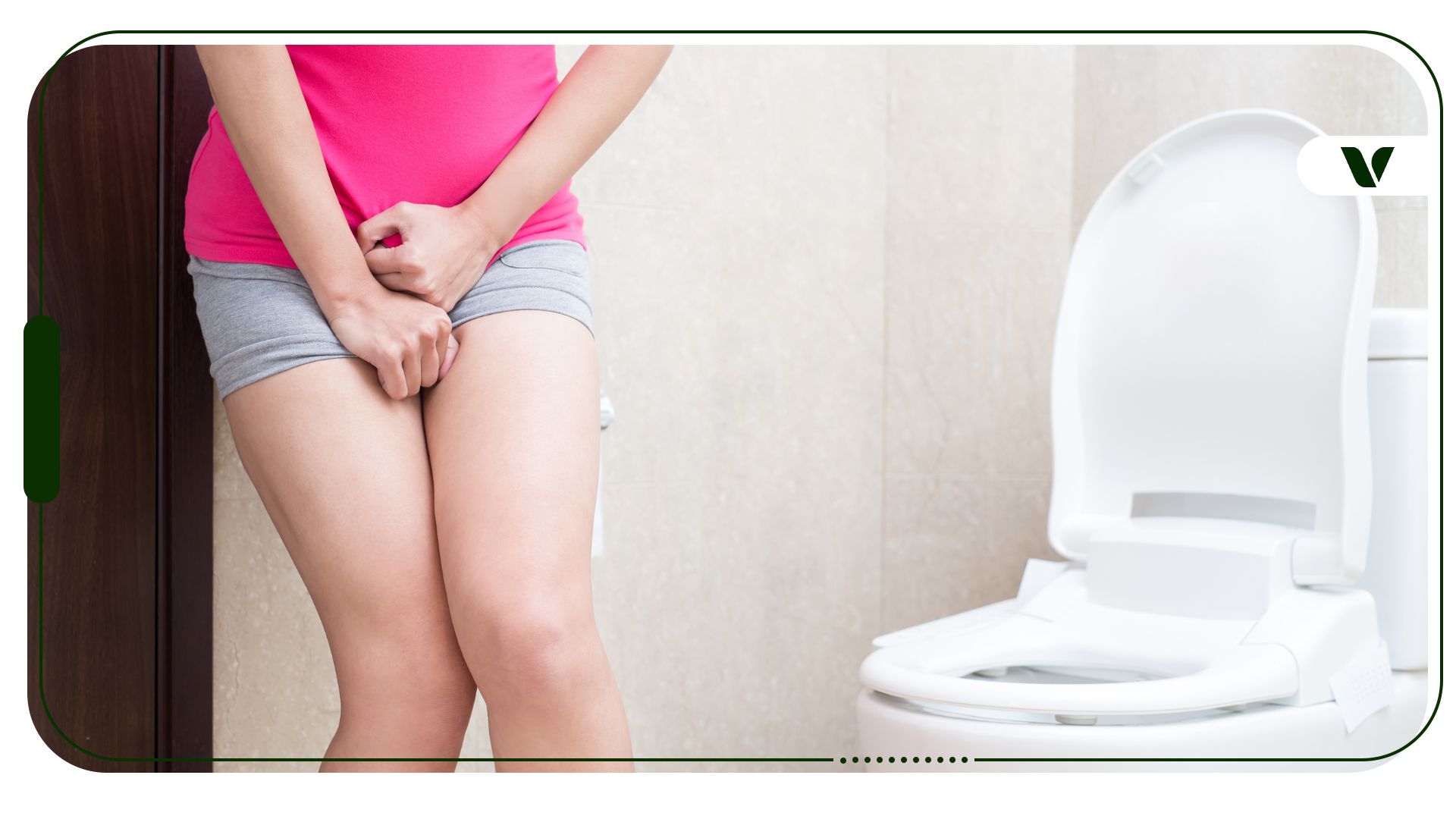Many states across the U.S. have legalized cannabis and hemp for medical and retail consumption. The regulations governing these industries primarily focus on the products’ content of the two most prominent cannabinoids found in the cannabis plant, cannabidiol (CBD) and delta-9-tetrahydrocannabinol (THC).
But in recent months, a new cannabinoid known as delta-8-tetrahydrocannabinol (delta-8 THC) has entered the scene. Boasting similar effects to delta-9 THC, delta-8 has been said to aid sleep, help with seizures, and assist with appetite management. However, the newness of the cannabinoid has led many to question its efficacy and legality.
In this guide, we will dive into what delta-8 THC is, how it affects consumers, why people are using it, and its legal status in various parts of the country.
- What Is Delta-8 THC
- How Does Delta-8 THC Work?
- Why Use Delta-8 THC?
- Delta-8 Medical Uses
- Are There Any Negative Side Effects?
- What Are the Positive Side Effects?
- Is Delta-8 THC Legal?
- Is Delta-8 Legal in My State?
- Is Delta-8 Regulated in My State?
- Is Delta-8 a Legal Gray Area in My State?
- Is Delta-8 Illegal in My State?
- Can I Fly With Delta-8?
- Why Isn’t Delta-8 Legal Everywhere Like CBD?
- Does Delta-8 Show Up on Drug Tests?
- Final Takeaway
What Is Delta-8 THC?
Delta-8 THC is a phytocannabinoid—just like CBD and THC—produced by cannabis and hemp plants in small amounts. It is an isomer of delta-9 THC, the most plentiful and psychoactive cannabinoid found in cannabis that is often referred to as simply “THC.” This means the quantities of delta-8 found naturally are a result of the degradation of THC, causing delta-8 to have a very similar chemical structure to THC and produce a comparable but less potent high.
Despite the common misconception that delta-8 is fully synthetic, it bears no resemblance to potentially dangerous synthetic cannabinoids like K2 that are completely man-made in a lab. However, few of the delta-8 products found on shelves contain wholly organic delta-8 pulled straight from cannabis or hemp plants. This is because delta-8 only occurs naturally in very small amounts, making it costly and time-consuming to extract on a large scale.
In order to produce delta-8 products at affordable prices, scientists found a way to create the cannabinoid from the high amounts of CBD found in hemp through an isomerization, or cannabinoid conversion, process. First, CBD is extracted from hemp and combined with a solvent and acid. After some time, the solution is neutralized and tested to ensure any toxic byproducts left by the chemical conversion have been removed. Thus, most delta-8 products could be considered to be semi-synthetic since the process begins with a natural substance, unlike fully synthetic cannabinoids.
Delta-8 THC should not be confused with dronabinol (marketed under the brand name Marinol) or nabilone (brand name Cesamet), synthetic forms of prescription delta-9 THC primarily used for loss of appetite or severe nausea. While delta-8 products hover in a legal gray area and are currently under scrutiny, dronabinol is explicitly legal in the U.S. and widely available in pharmacies. Dronabinol is only taken as a pill, but delta-8 products come in the form of tablets, concentrates, or gummies.
How Does Delta-8 THC Work?
Delta-8 THC interacts with the body’s endocannabinoid system (ECS) very similarly to delta-9 THC. They both show an attraction to the CB1 receptors typically found in the brain and spinal cord. Research has shown that delta-8 THC engages with the CB1 receptors in the ECS to create psychotropic effects, which is why you may experience some cognitive effects like euphoria with the delta-8 high.
Delta-8 THC binding to CB1 is shown to be lower than delta-9, which likely explains its less potent psychoactive effects. If one were to take a bigger dose of delta-8 to try to compensate, there would likely be more CB2 activation since it binds stronger to CB2 than CB1. Based on early research, we know that delta-8 binds to human CB2 receptors with a similar affinity as THC. However, not as much else is known about how delta-8 THC functionally influences the endocannabinoid system’s CB2 receptors, which are mostly found in the peripheral nervous system rather than the central nervous system.
Because CB2 receptors are particularly abundant in immune and digestive tissue, they play a big role in regulating immune functioning. Research shows that stimulating the CB2 receptors doesn’t lead to psychoactive effects like activating CB1 receptors does. Yet in animals, CB2 receptors can modify reward behavior by inducing rewarding feelings at low doses but aversion at higher doses.
Why Use Delta-8 THC?
Why might people decide to use delta-8 THC instead of delta-9 THC? There are a variety of reasons. For one, it’s often easier to access in states that have not legalized medical or recreational cannabis. Because delta-8 is synthesized from CBD in a lab, it is technically a hemp-derived product, so it’s considered by many to be a legal substitute for those seeking the effects of the popular delta-9 THC.
There are also many users who seek out delta-8 because of, rather than in spite of, its lower potency. The effects of delta-8 are said to be about half as strong as those of delta-9, so consumers who get easily overwhelmed by THC highs often find their sweet spot with delta-8. Delta-8 is also less likely to produce some of the negative side effects associated with THC, such as anxiety and paranoia.
Many consumers of delta-8 THC report feeling more clear-headed during its high, which is desirable for some. Delta-8 is also generally consumed in gummy or concentrate form, making it a good option for those who don’t enjoy smoking cannabis. Before dabbling in delta-8 THC products, we recommend consulting with a physician or healthcare provider.
Delta-8 Medical Uses
Aside from the psychoactive effects of delta-8 THC, studies have shown that it has medicinal value as well. Research has suggested that delta-8 THC may:
Currently, delta-8 THC has not been approved by the Food and Drug Administration (FDA) for medical or therapeutic use. These digestive and immune-related effects that have been studied thus far could be a consequence of how delta-8 THC interacts with CB1 and CB2 receptors in the body. It is clear that delta-8 THC leverages the ECS to produce different health effects, though more research is needed on the potential short- and long-term effects of delta-8 and products with semi-synthetic delta-8.
Are There Any Negative Side Effects?
The CDC states that delta-8 THC intoxication can cause adverse effects similar to those observed during delta-9 THC intoxication. These may include:
- Lethargy
- Uncoordinated movements and decreased psychomotor activity
- Slurred speech
- Increased heart rate progressing to slowed heart rate
- Low blood pressure
- Difficulty breathing
- Sedation
- Coma
It’s important to note, however, that the way cannabis products affect an individual is dependent on the following:
- Amount of cannabis ingested
- Frequency of cannabis use (tolerance)
- Use of cannabis alone or in concert with other substances
- Mode of consumption (e.g., edibles, vaping, tinctures, etc.)
- Manufacturer of the product and regulation of such products
- Whether adequate third-party and safety testing was done
- Previous experience with cannabis
- Biology (e.g., sex, genes, DNA)
What Are the Positive Side Effects?
The high provided by delta-8 THC is marvelously mellow, putting the consumer in a calm and relaxed state of mind. Effects vary based on dosage, as stipulated above. With delta-8 THC, lower doses tend to elevate mood and produce heightened energy levels. Higher doses can be sedating and work to relieve pain in the consumer. Here is a list of the positive effects you could experience when consuming delta-8 THC:
- Enhanced focus coupled with increased energy levels
- Weightless, floaty sensation
- A less intense high compared with delta-9 THC
- Increased appetite
- Heightened relaxation
Is Delta-8 THC Legal?
Delta-8 THC’s legality is largely unaddressed in both federal and state legislation, leaving consumers without explicit answers to this tricky question. Its existence as both a naturally occurring cannabinoid and a hemp-derived product places it in an ambiguous legal area. Nonetheless, many experts consider delta-8 products to be fully legal unless a city or state says otherwise.
According to the 2018 Farm Bill that federally legalized hemp and its derivatives, delta-8 products made from hemp-derived CBD are federally legal. While cannabis with THC above 0.3% remains a Schedule I drug and illegal on the federal level, delta-8 THC products earn a sort of loophole legality due to being hemp-derived and containing no delta-9 THC.
However, some states—even many that have legalized medical and recreational cannabis—have begun to ban delta-8 THC due to the uncertainty surrounding it. Delta-8 has been found to be safe for consumption, but some state governments want to see more information about its lab-synthesized form. In the next section, we’ll identify the states in which residents can access delta-8 THC products legally (which are subject to change).
Is Delta-8 Legal in My State?
Despite the widespread scrutiny of delta-8 THC, the cannabinoid is completely legal to purchase, possess, and consume in many states. Still, it’s not safe to assume delta-8 products are legal in your state even if medical or recreational cannabis is. Always check your state’s government websites for clarity on the matter. According to internet sources, delta-8 is legal in 30 states and Washington, D.C., as of January 2022, including:
- Alabama
- California
- Florida
- Georgia
- Hawaii
- Illinois
- Indiana
- Kansas
- Louisiana
- Maine
- Maryland
- Massachusetts
- Minnesota
- Missouri
- Nebraska
- New Hampshire
- New Jersey
- New Mexico
- North Carolina
- Ohio
- Oklahoma
- Oregon
- Pennsylvania
- South Carolina
- South Dakota
- Tennessee
- Texas
- Virginia
- West Virginia
- Wisconsin
- Wyoming
- Washington, D.C.
Is Delta-8 Regulated in My State?
Much of the controversy surrounding delta-8 products lies in the fact that they are largely new and unregulated, leading many to question the quality of the products. To keep a better eye on this market, some states have opted to regulate delta-8 the same way that recreational cannabis is regulated, meaning they oversee its production and distribution. So far, only two states have implemented delta-8 regulation:
Is Delta-8 a Legal Gray Area in My State?
After the 2018 Farm Bill was passed and delta-8 products began flooding the market, many states initially shared very little information about the legality of delta-8 THC. This created a legal gray area for many citizens around the U.S. Fortunately, all 50 states have declared delta-8 either legal or illegal since then, which is great news for consumers trying to navigate the patchwork of regulations throughout the country.
Is Delta-8 Illegal in My State?
In 17 states, delta-8 is completely illegal. These states have voiced concern about allowing the cannabinoid to be sold on the market with no regulations or oversight, which could lead to low-quality products, hazardous products, or products being sold without child-proof packaging. You may face criminal charges for the possession, consumption, or sale of delta-8 products in the following states:
- Alaska
- Arizona
- Arkansas
- Colorado
- Delaware
- Idaho
- Iowa
- Kentucky
- Mississippi
- Montana
- New York
- Nevada
- North Dakota
- Rhode Island
- Vermont
- Utah
- Washington
Can I Fly With Delta-8?
It is often legal to fly with delta-8 THC products, but it should be noted that this only applies when flying to and from states where delta-8 THC is legal. You could face issues if you are flying to a state where it is illegal, so it’s a good idea to double-check laws prior to departure. We’ve covered the current legality of delta-8 state-by-state, but it’s crucial for consumers to stay up to date on relevant laws since they are changing constantly.
For example, the Department of State Health Services (DSHS) in Texas initially declared delta-8 THC an illegal Schedule I substance in October 2021. However, a CBD dispensary in Austin filed a lawsuit against the DSHS and successfully secured a temporary injunction that blocked the DSHS from listing delta-8 THC as a controlled substance. This demonstrates how the legality of delta-8 THC is frequently shifting at the local and state levels.
Why Isn’t Delta-8 Legal Everywhere Like CBD?
Many believe that as long as delta-8 is made from hemp-derived CBD, it is legal under the 2018 Farm Bill—and this assumption is widely endorsed. However, CBD offers no intoxicating effects for consumers. When CBD is synthesized into delta-8 THC it produces intoxicating, psychoactive effects that mirror those of federally illegal delta-9 THC, which has led several states to enact their own laws classifying delta-8 THC as a controlled substance.
Does Delta-8 Show Up on Drug Tests?
If you’re planning to swap out delta-9 THC for delta-8 in order to pass a drug test, we have some bad news. While little research has been done into delta-8 and drug testing, most experts agree that there is at least a possibility that delta-8 will trigger a positive test. Delta-8 is simply an isomer of delta-9, meaning the compounds have the same molecular formula but a different arrangement of atoms. According to Jack Kain, medical science liaison at Quest Diagnostics, this can cause delta-8 to interfere with delta-9 tests.
Unfortunately, many drug tests just aren’t advanced enough to differentiate between various forms of THC. Most simply look for metabolites produced by the body after it processes the THC, and the metabolites left by delta-8 and delta-9 are very similar. A fact sheet from the National Drug Court Institute (NDCI) states, “Therefore, participants using delta-8 will likely screen positive for cannabinoids—either from the delta-8 metabolites themselves or from other cannabinoids that are present in the product being used.”
Indeed, another concern with drug testing is that delta-8 products can sometimes contain other cannabinoids, including delta-9. Cannabis scientist Riley Kirk, Ph.D., who strongly advises against consuming delta-8 before testing, told Gear Patrol that pure delta-8 is rare due to the lack of regulation surrounding it, and there’s evidence that delta-9 is frequently found in delta-8 products. And even if your delta-8 product is pure, the NDCI reports that “some commercial laboratories are now beginning to offer confirmation analyses for the delta-8 metabolite.”
The bottom line is that consuming delta-8 THC may or may not cause you to fail a drug test, so it’s important to avoid it entirely if you have a test coming up. Check out this post to learn about how long THC can be detected in your system using different types of tests.
Final Takeaway
A lot of misinformation and skepticism surrounds delta-8 THC, but science shows that the cannabinoid offers safe, mellow psychoactive effects and holds great potential for many medical uses. While it’s not fully synthetic, the low amounts found naturally have led most retailers to rely on delta-8 that has been manufactured from CBD through a chemical conversion process. Most experts consider delta-8 to be legal, but some states have imposed their own bans on it.
If you’re interested in using delta-8 THC products—particularly for therapeutic purposes—book an appointment to talk to an MMJ doctor about your options and the potential benefits delta-8 THC could offer you.
Note: The content on this page is for informational purposes only and is not intended to be professional medical advice. Do not attempt to self-diagnose or prescribe treatment based on the information provided. Always consult a physician before making any decision on the treatment of a medical condition.
This blog post was originally written by Ashley Priest and published on 5/19/21. Updated 1/13/22.
Author, Share & Comments


